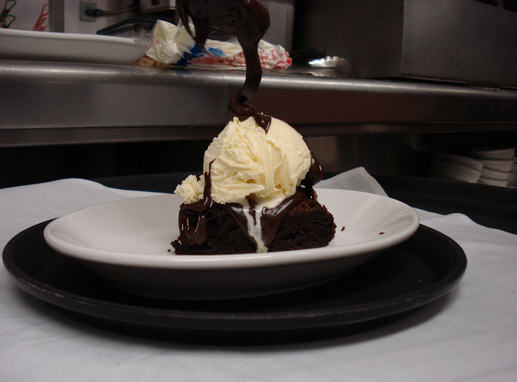In the film Sleeper (1973) Woody Allen’s character wakes up from cryostasis 200 years in the future to discover many things have changed. In this exchange his doctors discuss how thinking on diet has evolved:
Dr. Melik: This morning for breakfast he requested something called "wheat germ, organic honey and tiger's milk." Dr. Aragon: [chuckling] Oh, yes. Those are the charmed substances that some years ago were thought to contain life-preserving properties. Dr. Melik: You mean there was no deep fat? No steak or cream pies or... hot fudge? Dr. Aragon: Those were thought to be unhealthy... precisely the opposite of what we now know to be true. Dr. Melik: Incredible.
Recently I was at the Joslin Diabetes Innovation 2013 conference and came down to breakfast to find the doctors at my table spooning the ham and eggs out of the hotel’s wrap sandwiches and throwing the bread away.
It turns out that the rise in obesity (and diabetes) in the U.S. coincided with the dietary guidelines being revised to encourage everyone to eat less meat and saturated fats and eat more pasta and carbohydrates. My breakfast companions explained that the lipids that give you heart disease come not from eating saturated fats but from eating carbs, which the liver then turns into the small LDL particles that cause atherosclerosis.
The British Medical Journal (BMJ) recently reported that saturated fat may actually be protective, especially if it comes from dairy products containing vitamins A and D. Red meat may not be so bad either – the increase in coronary heart disease and diabetes previously blamed on meat may be explained by the nitrates and sodium used as preservatives in processed meats.
Furthermore, the widespread use of statins to lower cholesterol in otherwise healthy people may be causing more harm than good. According to a study cited in the article even for people who have suffered a heart attack, adopting a Mediterranean diet is almost three times as powerful in reducing mortality as taking a statin. That may not include hot fudge sundaes and steaks, but it also doesn’t include junk food, soda, and margarine, none of which taste all that good anyway.
Photo credit: bobbysbloomington. com

Chris Herot has been the founder and CTO or CEO of several Boston-area software companies, most recently Convoq/Zingdom Communications, where he provides strategic and technical advice to clients worldwide in the areas of audio, video, and social media.
Ever since he left what is now MIT’s Media Laboratory, he has been building interactive systems to enable people to create and communicate. What he enjoys most is learning about new technologies and finding ways to deploy them to solve human problems. To do this, he has started three companies and formed new entrepreneurial businesses within larger enterprises.









